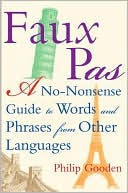Category Books
- Fiction Books & Literature
- Graphic Novels
- Horror
- Mystery & Crime
- Poetry
- Romance Books
- Science Fiction & Fantasy
- Thrillers
- Westerns
- Ages 0-2
- Ages 3-5
- Ages 6-8
- Ages 9-12
- Teens
- Children's Books
- African Americans
- Antiques & Collectibles
- Art, Architecture & Photography
- Bibles & Bible Studies
- Biography
- Business Books
- Christianity
- Computer Books & Technology Books
- Cookbooks, Food & Wine
- Crafts & Hobbies Books
- Education & Teaching
- Engineering
- Entertainment
- Foreign Languages
- Game Books
- Gay & Lesbian
- Health Books, Diet & Fitness Books
- History
- Home & Garden
- Humor Books
- Judaism & Judaica
- Law
- Medical Books
- New Age & Spirituality
- Nonfiction
- Parenting & Family
- Pets
- Philosophy
- Political Books & Current Events Books
- Psychology & Psychotherapy
- Reference
- Religion Books
- Science & Nature
- Self Improvement
- Sex & Relationships
- Social Sciences
- Sports & Adventure
- Study Guides & Test Prep
- Travel
- True Crime
- Weddings
- Women's Studies
Faux Pas: A No-Nonsense Guide to Words and Phrases from Other Languages »

Authors: Philip Gooden
ISBN-13: 9780802714732, ISBN-10: 0802714730
Format: Hardcover
Publisher: Walker & Company
Date Published: March 2006
Edition: (Non-applicable)
Author Biography: Philip Gooden
Book Synopsis
"Have you ever been embarassed by the bons mots that some people toss casually into conversation, or wished that you had a clever retort?" "Faux Pas offers insight into hundreds of these phrases that readers will (or might not) want to use in writing or conversation once they know their correct meanings and usage. Entries include both familiar terms and phrases that are new, curious, or even just amusing. Each expression is "translated" and denotes the language of origin, pronunciation, and usefulness. A Pretentiousness Index is included for many expressions to assist you in avoiding inappropriate usage." Whether you are a linguaphile or a professional wordsmith, or just want to impress your friends with a few well-chosen apercus, Philip Gooden's guide can rescue you from potential language land mines and help you to maintain your sangfroid. Full of examples drawn from everyday contexts, Faux Pas will make sure that you don't upset any honchos with your chutzpah.
Library Journal
Novelist and editor Gooden (Who's Whose?: A No-Nonsense Guide to Easily Confused Words) hopes readers will consult his book before attending their next dinner party so that they can impress friends by strategically injecting non-English words into their conversation. He expands traditional dictionary definitions by offering a "Pretentiousness Index" for words derived from Latin, German, French, and other languages. Each rating is either nil, for words that are well established among most English speakers (e.g., aficionado, antebellum) or ranges from one to three exclamation points to show varying levels of pretense (e.g., "au naturel" and "savant" receive one exclamation point while "au contraire" and "moi" receive three). Along with the rating and its paragraph of discussion, each definition includes a quote from a newspaper or literary source using the word, a pronunciation guide, reference to the word's original language, and a translation. Weaknesses include a pronunciation guide that does not use consistent, official phonetic symbols and quotes that indicate author or publication name but otherwise lack citations or even dates. The "pretense" discussion incorporates etymology in some entries but not in all, and no bibliography is offered. Bottom Line This resource is less formal and provides fewer entries than either the Oxford Dictionary of Foreign Words and Phrases or The Facts On File Dictionary of Foreign Words and Phrases, but owing to its dominant "Pretentiousness" ratings, it makes for an enjoyable read; Gooden's opinions about word usage are at once serious and amusing. Recommended for the circulating collections of academic and public libraries.-Marianne Orme, Des Plaines P.L., IL Copyright 2006 Reed Business Information.
Table of Contents
Subjects
 Dictionaries & Thesauri
Dictionaries & Thesauri  English language -> Dictionaries -> Foreign words and phrases
English language -> Dictionaries -> Foreign words and phrasesReference
 English-language Reference
English-language Reference  English Dictionaries & Thesauri
English Dictionaries & ThesauriNonfiction
 Reference
Reference  Dictionaries & Thesauri
Dictionaries & ThesauriNonfiction
 Reference
Reference  English-language Reference
English-language Reference
